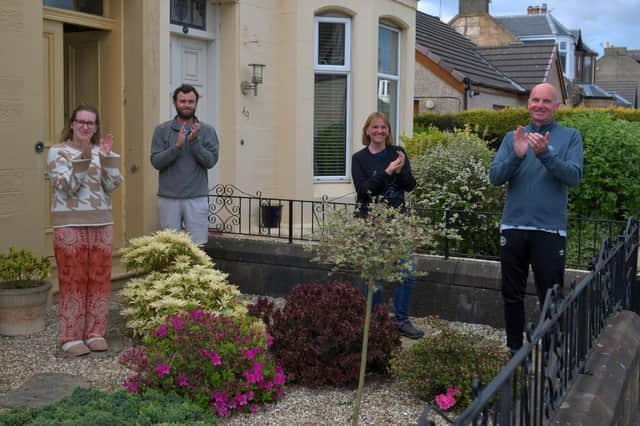Covid: A radical overhaul is needed to fix our health and social care systems – Mubin Haq


The best of the “good” is the roll-out of the vaccine, which should allow the speedy reopening of the economy. In addition, furlough, for many, has been a lifesaver, protecting millions of jobs and shoring up incomes. This was much needed with nearly half of Scotland’s workers seeing their pay drop during the first lockdown.
By the end of 2020, nearly 10 million jobs had been furloughed costing £46 billion. Indeed, almost five million remain on furlough. Together with the nearly seven million self-employment grants, these income boosts ensured the hit to household incomes was greatly reduced.
Advertisement
Hide AdAdvertisement
Hide AdWhilst the economy has been dealt a massive blow, this has not so far translated into the very large job losses many feared. The job retention measures worked. Coupled with other support, such as the Scottish Child Payment, the temporary increase to Universal Credit, and payment holidays, these actions protected the livelihoods of millions. The problem arises once furlough ends. Only then will we see the full extent of the damage to the labour market.
The “bad” has many forms. Many remain excluded from furlough and self-employment support, especially those working in the gig-economy and in insecure jobs. This is not a small problem.
We recently estimated nearly four million people were excluded, of which half had lost at least a third of their income. Unsurprisingly, many of those excluded from the support schemes have been left struggling to pay for food. Governments have had time to make the schemes more nuanced, to help those who slipped through the net, but in the main, chose not to do so.
Which brings us to the “ugly”. The pandemic has exacerbated society’s existing inequalities. Most who faced the hardest financial challenges have been the same people who were already least able to keep afloat: lone parents, disabled people, black and minority ethnic groups, and younger people.
The poorest were unable to reduce spending as much of their expenditure is on essentials. Coupled with income falls, they saw their bank balances reduce by nearly £200 a month during the pandemic, whilst those on higher incomes saw increases of nearly £400 a month.
Hindsight is a wonderful thing. One year on from the first lockdown, it’s easy to look back and say what governments could have done differently. However, the evidence has been painfully clear for a long time.
Our society was under-prepared for a pandemic. Not just in a medical sense, but in the way key jobs are low-paid and under-valued, in the way inequalities have been increasing, and in the way our safety net has faced years of cuts.
Clapping for our carers was always going to be hollow unless followed up with improved pay and conditions. We can do much better, we want our society to be so much better, and research shows we’re prepared to pay for it.
Advertisement
Hide AdAdvertisement
Hide AdThe public support bold moves to fix our health and social care system. Not just minor tinkering but an overhaul which makes a real difference to our future living standards and financial security.
Mubin Haq is the Standard Life Foundation’s chief executive
A message from the Editor:
Thank you for reading this article. We're more reliant on your support than ever as the shift in consumer habits brought about by coronavirus impacts our advertisers.
If you haven't already, please consider supporting our trusted, fact-checked journalism by taking out a digital subscription.
Comments
Want to join the conversation? Please or to comment on this article.